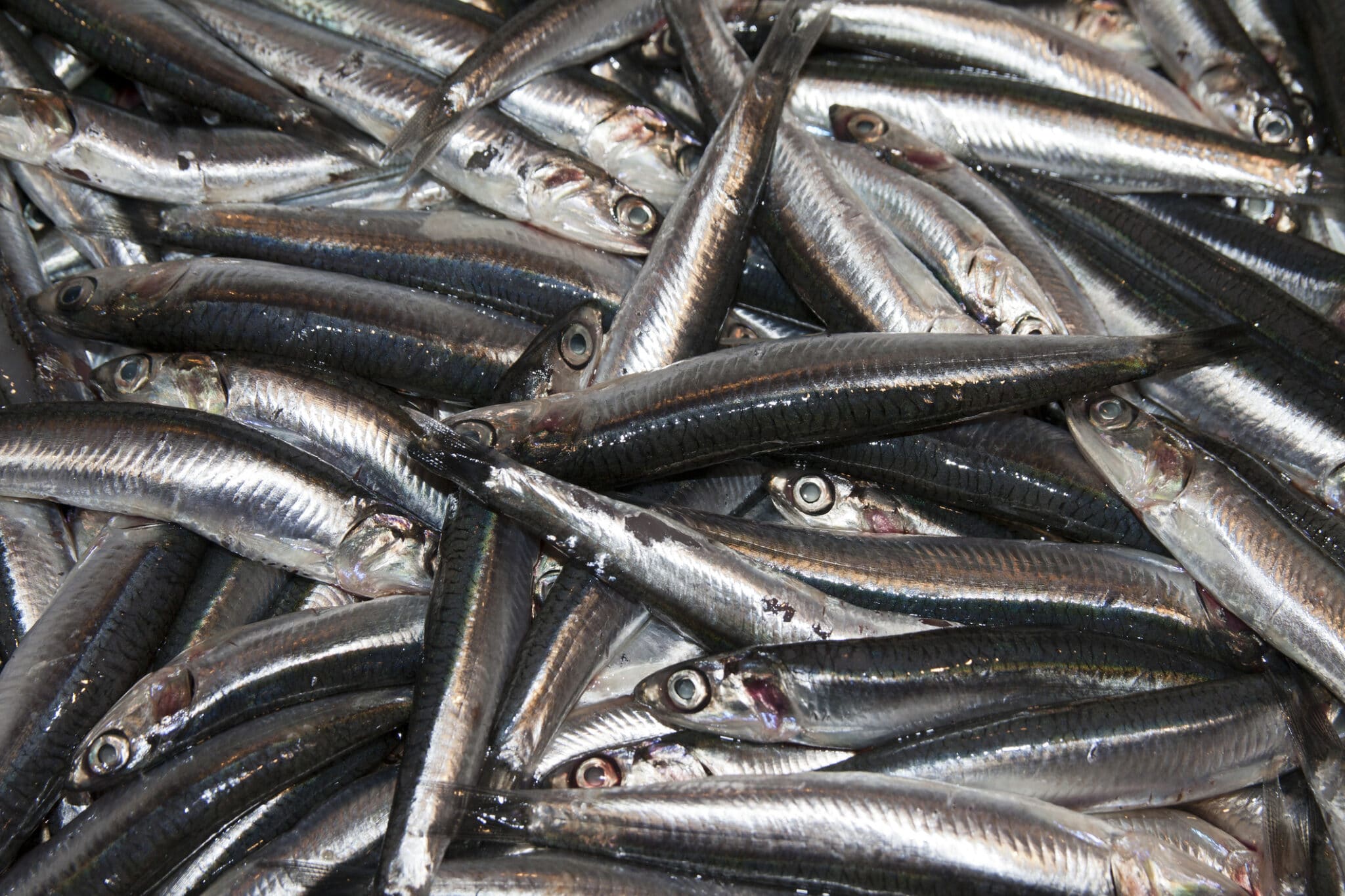Le anchoviesalso known as aliceare small fish of great importance both in cooking and from a nutritional point of view. This oily fish, belonging to the Engraulidae family, is a key ingredient in many traditions culinary delights of the Mediterranean. Anchovies are known not only for their strong and versatile flavour, but also for their numerous health benefits. In this article, we explore everything you need to know about anchovies: from their biological characteristics to their fishing, from their preparation in the kitchen to their nutritional benefits.
The anchovy, scientifically known as Engraulis encrasicolusis a fish that, despite its small size, plays a significant role both in the marine ecosystem and in the gastronomy human. Usually, anchovies reach a length of 15-20 centimetresmaking them relatively easy to identify. Their bodies are elongated and tapered, with a silvery colouration on their flanks and a distinctive dark stripe running along their backs. This colour combination not only gives them an elegant appearance, but also serves as a natural camouflage against predators. The silvery colouration reflects the light from the water, making it more difficult for predators to spot these small fish.
Anchovies are abundant in the temperate and warm waters of the Mediterraneanwhere they find the ideal environment to thrive. However, their presence is not limited to this geographical area. In fact, anchovies are also found in the eastern Atlantic from the Bay of Biscay to the coast of South Africa. This wide distribution is indicative of their ability to adapt to different environmental conditions and their ecological importance.
Anchovies are pelagic fish that prefer the coastal watersoften being close to the surface of the sea. However, they can descend to depths of 200 metresdemonstrating remarkable adaptability. They are gregarious fish, which means that they live in large shoals. This gregarious behaviour not only offers protection against predators, but also facilitates the search for food and reproduction.
The diet of anchovies consists mainly of plankton, small crustaceans and fish larvae. This type of diet is typical of filter-feeding fish, which pass water through their gills to capture food. Their presence in large numbers and their plankton-based diet make them a fundamental link in the marine food chainsupporting not only the survival of larger predators, but also the entire marine ecosystem.
Anchovy fishing is an activity of vital economic and cultural importance for many Mediterranean coastal regions. The fishing techniques used vary depending on the region and local traditions, but one of the most common and effective is fishing with anchovies. encircling nets. This technique involves the use of nets that encircle entire schools of fish, allowing large quantities of anchovies to be caught without damaging the marine ecosystem. The use of encircling nets is considered relatively sustainable because, if well managed, it can minimise bycatch of other marine species.

La sustainability of anchovy fishing is a crucial issue, especially at a time when many marine resources are overexploited. Many regions have implemented strict regulations to ensure that anchovy populations remain stable. These regulations include catch limits, closed fishing seasons to allow for restocking, and the use of selective fishing gear that minimises impact on the environment. For example, in Italy and in Spain, there are laws regulating the minimum mesh size of nets to ensure that only fish of the appropriate size are caught, allowing young specimens to grow and reproduce.
Sustainable management of marine resources is essential to ensure that anchovies can continue to be a source of food and income for coastal communities. In addition, sustainable fishing helps to preserve the marine biodiversityensuring that marine ecosystems can continue to function in a healthy and balanced manner.
Anchovies are incredibly versatile in the kitchen, and their preparation can vary greatly according to local culinary traditions. They can be eaten fresh, marinated, salted or preserved in oil, each of these preparations enhancing different characteristics of the fish. One of the most common and traditional preparations is the salted anchovies, an ancient preservation method that enhances the intense flavour of the fish. This method involves cleaning the anchovies and storing them in alternating layers of sea salt, which intensifies their flavour and prolongs their shelf life.
Salted anchovies can be used to prepare a wide range of dishes, from salads to pasta sauces. For example, in the Italian cuisine, the salted anchovies are a key ingredient in the preparation of anchovy pastaa simple yet flavourful dish that combines anchovies with olive oil, garlic and chilli pepper.
A classic Italian dish that uses anchovies is the Neapolitan pizzawhere salted anchovies are added to give it a unique and strong flavour. The combination of mozzarella, tomato and anchovies creates a perfect balance of flavours, which has made this pizza variant famous worldwide. Another example is the bagna caudaa Piedmontese hot sauce made with anchovies, garlic and olive oil, which is traditionally served with raw vegetables. This dish enhances the flavour of anchovies and is one of the most iconic preparations of Piedmontese cuisine.
Anchovies are also used in more innovative preparations. For example, they can be added to gourmet salads, used as the main ingredient in tapas Spanish or even incorporated into complex sauces for haute cuisine dishes. Their versatility and intense flavour make them a valuable ingredient in many cuisines around the world, both in traditional dishes and in new culinary creations.

Anchovies are not only delicious, but also extremely nutritious. They are an excellent source of proteins high quality, essential for the growth and maintenance of body tissue. Protein consists of amino acids, some of which are essential and must be taken in through the diet. Anchovies provide a full range of these essential amino acids, making them a particularly useful food for those on a balanced diet.
In addition, anchovies are rich in omega-3 fatty acidswhich are known for their heart health benefits. Omega-3s, particularly eicosapentaenoic acid (EPA) and docosahexaenoic acid (DHA), help reduce levels of bad cholesterol (LDL) and increase those of good cholesterol (HDL). This balance contributes to the prevention of cardiovascular disease by reducing the risk of heart attacks and strokes. In addition, omega-3 has anti-inflammatory properties and can improve brain health and cognitive function.
Anchovies also contain vitamins and minerals important, such as the vitamin Dthe football and the selenium. Vitamin D is essential for healthy bones and the immune system, helping the body to utilise calcium effectively. Calcium, on the other hand, is essential for the formation and maintenance of healthy bones and teeth, and is particularly important for the prevention of osteoporosis.
Selenium, finally, is a powerful antioxidant which protects cells from oxidative stress, reducing the risk of chronic diseases such as cancer. In addition, selenium supports the proper functioning of the immune system and the thyroid gland.

In summary, anchovies not only enrich dishes with their unique flavour, but also offer a wide range of health benefits, making them a valuable addition to any balanced diet.
Anchovies, also known as anchovies, are more than just an ingredient in cooking. These small fish offer a unique combination of intense flavour and nutritional benefits that make them indispensable in Mediterranean diets and beyond. Their versatility in the kitchen allows them to be used in a wide range of dishes, from classics such as Neapolitan pizza and bagna cauda to more innovative and gourmet preparations. Their rich in protein, omega-3 fatty acids, vitamins and minerals makes them a valuable health ally.
Anchovy fishing, if conducted sustainably, can continue to support coastal communities and preserve fish populations for future generations. Fishing techniques, such as the use of purse seines, and strict regulations help maintain an ecological balance, ensuring that the marine environment is not compromised.
The use of anchovies in cooking is a journey through rich and complex flavours. Whether eaten fresh, marinated, salted or preserved in oil, anchovies add a touch of umami taste that enhances any dish. Try incorporating them into your recipes to discover new dimensions of flavour and health.
1. Are fresh anchovies better than preserved ones? It depends on the use. Fresh anchovies are ideal for delicate dishes, while salted or pickled anchovies add intense and complex flavours.
2. How can I reduce the salty taste of preserved anchovies? You can rinse them briefly under running water or soak them in milk for a few minutes before use.
3. Are anchovies safe to eat for those with cholesterol problems? Yes, anchovies are rich in omega-3 fatty acids that can help manage cholesterol levels.
4. What is the best way to store fresh anchovies? Fresh anchovies should be stored in the refrigerator and consumed within one or two days from purchase to guarantee freshness.
5. Can I use anchovies in vegetarian dishes? No, anchovies are fish and not suitable for a vegetarian diet. However, there are vegetable alternatives that can mimic their umami flavour, such as seaweed.
We are a young Web Agency with more than 10 years of experience, we love travelling and discovering new places, that is why we write every day on Italia Delight our travel site.

Italia Delight is your definitive guide to Italian restaurants, offering a comprehensive directory and web marketing services to enhance every dining experience. Discover, taste and connect with Italian tradition.
To provide the best experiences, we and our partners use technologies like cookies to store and/or access device information. Consenting to these technologies will allow us and our partners to process personal data such as browsing behavior or unique IDs on this site and show (non-) personalized ads. Not consenting or withdrawing consent, may adversely affect certain features and functions.
Click below to consent to the above or make granular choices. Your choices will be applied to this site only. You can change your settings at any time, including withdrawing your consent, by using the toggles on the Cookie Policy, or by clicking on the manage consent button at the bottom of the screen.